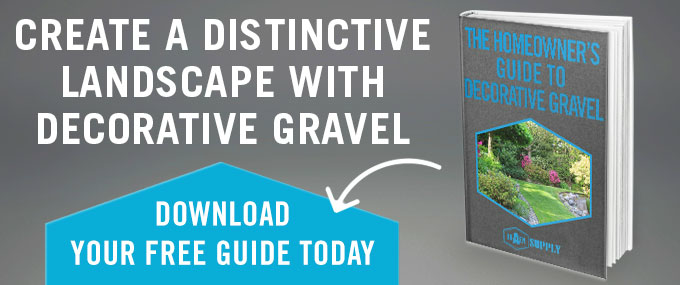How To Clean Pavers Around a Pool
If your backyard has a pool, chances are that your house is the local hot spot for swimming and getting together during the summer months. Before you can allow your friends, neighbors and family to make use of your swimming pool, you need to feel confident that the deck pavers are in tip-top condition.
Pavers that have been properly cleaned, sealed and maintained are much safer and more inviting than concrete or brick paving stones that are dirty or covered in mold. So, how do you take steps to ensure that your pool deck will impress all of your invited guests?
Consider all the basics of proper pool deck maintenance, so that you know exactly how to clean pavers and keep them looking fabulous from year to year.
Benefits to Learning How to Clean Pavers
Before you can start learning how to clean pavers, you have to determine that this is something that you actually need to do. After all, who wants to spend time cleaning their pool deck just for fun? If you feel as though your pavers are lacking color or structurally unsound, then learning how to clean pavers might be the best solution for you. Fortunately, the process of cleaning pavers is not very labor-intensive or time-consuming. Even more fortunate, learning how to properly clean pavers can yield significant results. Some key benefits include:
- Lasting Color – The pavers that you choose for your swimming pool deck were likely carefully selected for their rich and attractive color palette. Pavers that have been designed for use around swimming areas feature an array of hues that contrast majestically against the glittering blue waters of the pool. It’s only natural, then, that you would desire to keep these colors as vibrant and vital as possible – even when exposed to the sun, wind, rain and snow. Careful maintenance and cleaning will help to ensure that the colors continue to “pop” and look spectacular for the long haul.
- Pristine Appearance – A well-loved pool is one that is used frequently. Whether you and your family are choosing to lounge poolside in luxurious chairs or your kids are constantly padding their feet back and forth across the deck as they practice their best cannonball jumps and dives, your pavers are sure to be subject to some wear and tear after time. The overall appearance of the stone can become marred, faded, scuffed and stained after being exposed to heavy volumes of foot traffic, chemicals from the pool, spilled food and drink, sliding patio furniture and more. By choosing to regularly clean your pavers you can address any problems as they arise and keep your pool deck in pristine condition without having to spend a lot of money on a professional overhaul.
- Improved Safety – Although a good sealant can help to discourage major problems from occurring, your pavers may still be prone to the growth of mold, mildew and algae. It’s only natural for materials that are exposed to damp conditions on a regular basis to develop issues like these. Left untreated, mold, mildew and algae can create health hazards and can cause slips and falls. Fortunately, you can take measures to prevent these types of growth by simply sticking to a regular cleaning schedule.
- Protected Investment – Despite the fact that both concrete and brick pavers are quite affordable, making the decision to install a paved pool deck still requires an investment of your money and your time. The last thing you want is for your project to become deteriorated in a matter of just a few years. When properly cared for, pavers can last for a very long time, thus giving you the best return on your initial investment. It’s in your best interest, then, to set aside a little time to keep your pavers in peak condition so that they will continue to serve your needs throughout the years. Proper cleaning and maintenance can also help to protect any warranties that you have on the pavers.
Necessary Materials
In order to clean and care for your pool deck pavers, you’ll need to have the following materials on hand:
- Push broom or brush
- Garden hose with nozzle setting
- Power/pressure washer
- Mild detergent or cleaner
- Rotary surface cleaner (optional)
How to Clean Pavers Around Your Pool
Learning how to clean pavers around your swimming pool is quite simple and once you get into the routine of doing so, you’ll find that it doesn’t take much time at all. The main reason for regularly cleaning your pavers is to prevent dirt, dust, salt, chemicals and other debris from having the time and ability to build up and create difficult stains and problems for your pool deck.
Usually, you can address these issues by sweeping the deck or spraying it down with a garden hose. Sometimes, though, a little more power is needed to discourage those stubborn patches of dirt from sticking around. In this case, you might consider using a pressure washer.
If you opt to go this route, be sure to use the fan setting in order to prevent high pressured streams of water from causing damage to the sand between paver joints.
In the event that food or drink are spilled on the pavers, be sure to treat the area immediately. Often these stains can be addressed with a simple solution of a mild detergent or cleaner, like dish soap and water. Scrub the solution over the affected area with a push broom and rinse thoroughly once the stain has been lifted.
We suggest that you cover your pool before cleaning and make sure all debris has been filtered out or skimmed prior to swimming.
Other Tips and Suggestions
Knowing how to clean pavers around your pool deck is very important, but your cleaning efforts will be much simpler and more effective if you also make sure to seal the pavers after they have been installed.
A good sealant that’s compatible with your specific pavers will help to lock in the color of the stones, prevent fading and discoloration, add strength and structural integrity, make it more difficult for stains to become absorbed and set in the brick or concrete and will stop water from being able to get into any tiny fissures and freezing and cracking during the winter months. After the initial sealing, we suggest that you re-seal the pavers at least every 2-3 years.
Make sure that you also know how to care for your pavers during the winter months. Some materials react badly to rock salt and other ice melting chemicals which can cause discoloration and staining. Be sure to consult with a trusted professional and review manufacturer instructions prior to using any ice melt.
If you still have questions about how to clean pavers around your pool or other areas throughout your property, the experts at Braen Supply can help. We work with the leading manufacturers of concrete and brick pavers, providing us with valuable insights into working with these high-quality materials. We’re happy to walk you through the process and take the time to ensure that you understand what needs to be done in order to keep your pavers looking and functioning great. We sell the materials that you need to clean and reseal your pavers at the most competitive prices on the market. Give us a call or visit us to get started today.







 Whether it’s located indoors or outdoors, a stone fireplace will always steal the show, acting as the heart and centerpiece of the space in which it’s located.
Whether it’s located indoors or outdoors, a stone fireplace will always steal the show, acting as the heart and centerpiece of the space in which it’s located. When considering whether or not to install stone veneer for your home, business or within your landscape you need to evaluate the costs. We’ve spoken with many NJ homeowners and find that most are unsure of the total cost of a stone veneer project.
When considering whether or not to install stone veneer for your home, business or within your landscape you need to evaluate the costs. We’ve spoken with many NJ homeowners and find that most are unsure of the total cost of a stone veneer project.